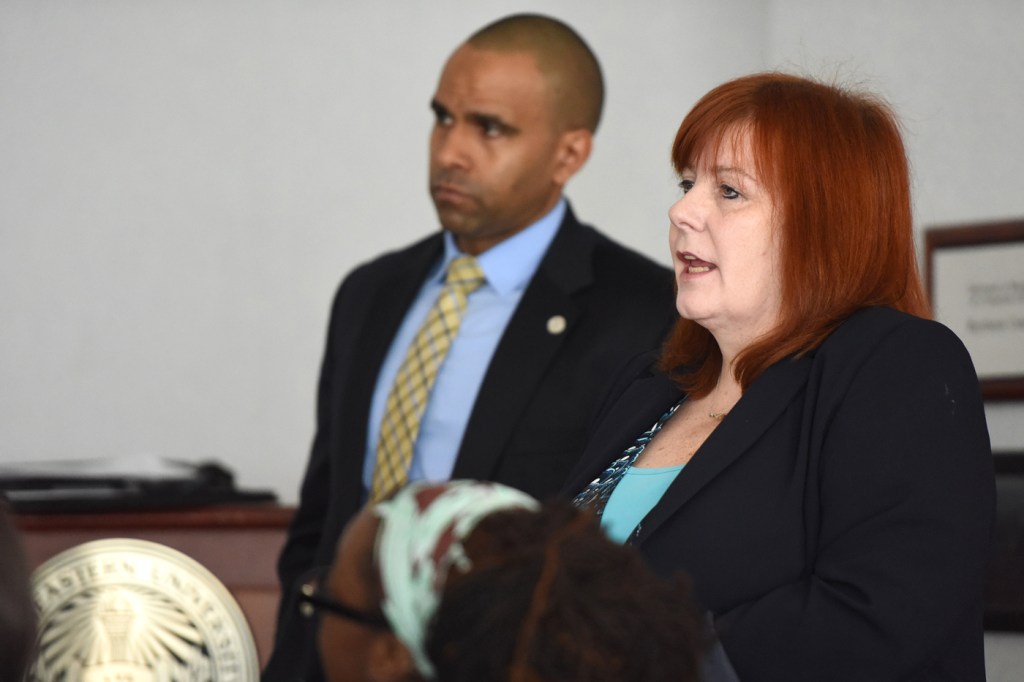Faculty Senate hears presentation on campus safety, security

At the first Faculty Senate meeting of 2016, Northeastern University Chief of Police Michael Davis and Vice President for Student Affairs Madeleine Estabrook explained how their respective teams work to promote and influence safety for the Northeastern community at home and abroad.
Davis, who took over as head of the NUPD in fall 2013, noted that he oversees a specialty police force charged with protecting students, faculty, and staff on an urban campus as well as those working and studying around the world.
“Our focus is to understand the complexity of this institution and under what conditions it can operate as intended,” Davis told the senate on Wednesday afternoon in the Raytheon Amphitheater. “We are looking at it from a broad spectrum, which includes everything from what we all understand are emergencies to what is destabilizing someone’s presence in a place.”
Davis also praised the way his officers interact with members of the university community, adding that they’re trained in techniques directed toward producing productive conversations.
“We don’t walk around as officers suspiciously looking at everyone as a potential threat to campus,” Davis said. “We look for opportunities to engage people. We let our officers know that service is their work.”
Estabrook explained that her office, in conjunction with the NUPD, is designed to respond to all types of situations that impact the student experience, from the theft of a laptop to the inherent pressures of college life.
“Our students are everywhere,” she said, “and they and their families expect certain services for them, on behalf of them, and most certainly when they are in crisis.”
Davis and Estabrook pointed to the November 2015 Paris attacks as an example of how preparedness, collaboration, and response ensured the well-being of Northeastern community members. The university quickly identified how many students and faculty were in Paris during the attacks, and then determined their whereabouts and state of security.
It’s about being able to respond in an effective way as soon as possible, and what are the tools that enable us to do that.”
— Chief of Police Michael Davis
Moving forward, Davis wants to grow the university’s collective competency when it comes to preparing and responding to an event.
“I want to increase the sense of the community we have here,” Davis said. “We want to know where people see their roles and identify information-sharing opportunities.”
Following the presentation, School of Law professor Richard Daynard asked Davis to comment on the department’s strategy enhancements for responding to a possible active shooter situation on campus, and the issues is recently caused with the City of Boston.
“It’s about being able to respond in an effective way as soon as possible, and what are the tools that enable us to do that,” Davis said. “And being familiar with campus and its operations, and also being intertwined with a prevention strategy is the essential part of responding quickly.”
Also at Wednesday’s meeting, Vice Provost for Budget, Planning, and Administration Anthony Rini updated the senate on the university’s hybrid budget that was implemented in 2011. Rini explained that this budget model encourages entrepreneurial activity, provides colleges with resources for strategic investment, and includes mechanisms to urge cross-unit collaboration.





